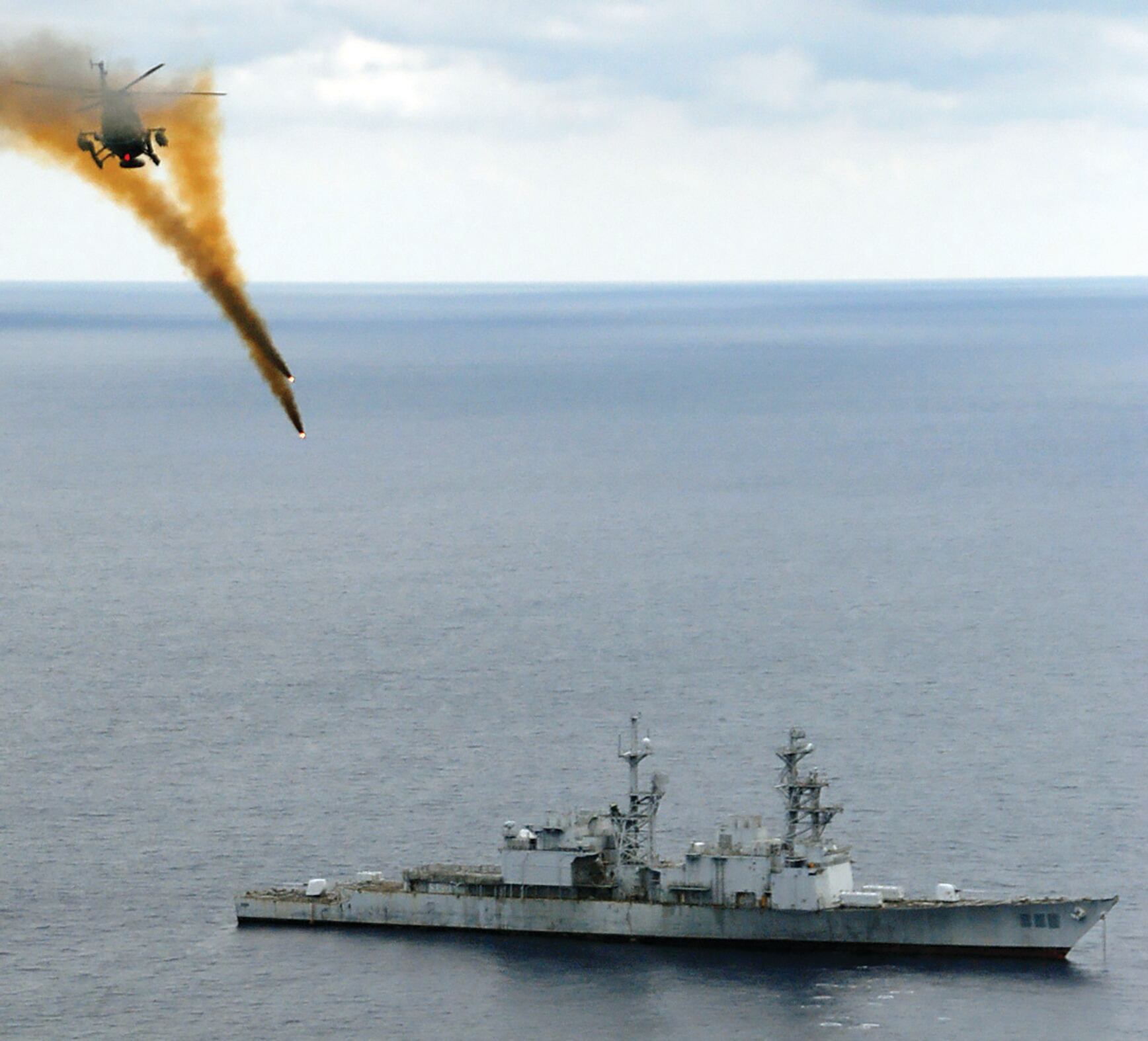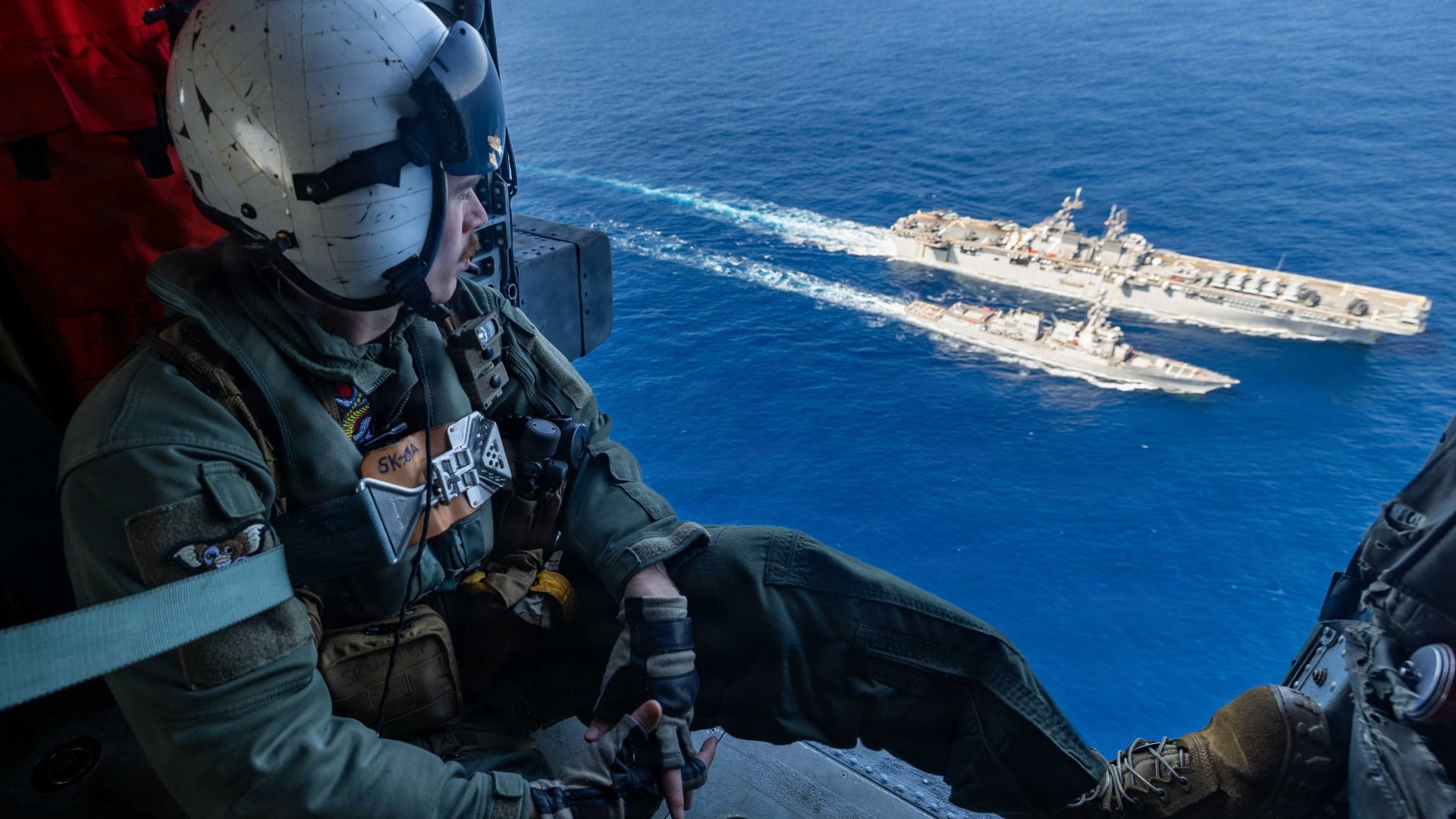WASHINGTON – The Marine Corps is all in on fielding mobile anti-ship missiles in the Pacific to challenge China’s growing Navy, declaring it in written testimony to the Senate Armed Services Committee’s seapower subcommittee to be its highest ground modernization priority.
“A ground-based anti-ship missile capability will provide anti-ship fires from land as part of an integrated naval anti-surface warfare campaign,” the written testimony reads. “This forward-deployed and survivable capability will enhance the lethality of our naval forces and will help to deny our adversaries the use of key maritime terrain.”
The designation of the Marines’ ship-killing ambitions as its top modernization priority comes as the Marine Corps is going full-steam toward reorienting itself as an extension of naval power, rather than the lighter version of the Army that it evolved into during the height of its involvement the Iraq and Afghanistan conflicts.
RELATED

The Marine’s are moving out on rapid fielding of at least two ground-based anti-ship systems, according to recent testimony and fiscal year 2021 budget documents. The Navy Marine Expeditionary Ship Interdiction System (NMESIS) which pairs its Remotely Operated Ground Unit for Expeditionary Fires (ROGUE-Fires) drone vehicle and the Navy’s new ship-killer Naval Strike Missile.
The second is a ground-launched version of the Tomahawk Missile, made possible by the recent U.S. withdrawal from the Intermediate-Range Nuclear Forces Treaty that prohibited intermediate-range ground-launched cruise missiles.
NMESIS uses the Marines’ High Mobility Artillery Rocket System (HIMARS) on the chassis of a remotely operated version of the Army’s Oshkosh-built Joint Light Tactical Vehicle, loaded with a Kongsberg/Raytheon Naval Strike Missile.
“The Naval Strike Missile is identical to the Navy’s over-the-horizon weapon system deployed on the littoral combat ship and will provide the Marine Corps with a missile capable of sea-skimming, high maneuverability, and the ability to engage targets from the side rather than top-down,” the testimony reads.
“Enhancements made to the HIMARS and development of the ground-launched cruise missile will further strengthen the capabilities of the entire naval fires enterprise.”
Tomahawks
In testimony Thursday, Marine Corps Commandant Gen. David Berger told lawmakers the decision to request 48 of the Raytheon-built Tomahawks was to add a long-range capability to threaten enemy warships.
“Part of the homework that the Navy and Marine Corps done over the past six months is how we think we are going to need to operate in the future as an integrated naval force and that means the Marine Corps assumes a role that we have not had in the past 20 years which is how do we contribute to sea control and sea denial,” Berger said.
“The Tomahawk missile is one of the tools that is going to allow us to do that. … It could be the answer, it could be the first step towards a longer-term answer five, six, seven years from now but what we need is long-range precision fires for a small unit, a series of units that can from ship or from shore hold adversaries’ naval force at risk."

The Navy, along with Raytheon, has been developing a ship-killer version of its venerable Tomahawk cruise missile.
“Maritime Strike Tomahawk,” which incorporates a seeker and some level of target discrimination so it can shift midair to hit a moving target.
A Navy brief says the Maritime Strike Tomahawk’s new seeker kit “enables the capability to hit moving maritime targets through mid-course guidance via third party or seeker mode, to a terminal seeker area of uncertainty.”
The missile is slated to be declared operational in 2023, and is likely what the Marines are pursuing as well. The Tomahawk has an unclassified range of about 900 nautical miles.
A ground-based Tomahawk would previously have been banned under the INF Treaty, which U.S. Military officials in the Pacific has long held put the U.S. at a disadvantage because China was not a part of it.
The INF was a 1987 pact with the former Soviet Union that banned ground-launched nuclear and conventional ballistic and cruise missiles with ranges of 500 to 5,000 kilometers. However, the United States and NATO allies have for years declared Russia in violation of the agreement.
Naval Integration
The Marine Corps’ concept of operations, as outlined by Berger in last year’s planning guidance, calls for the Marine Corps to more intimately align itself as an arm of naval power than it has been during two decades of wars in Iraq and Afghanistan. As part of that, the Marines want to be able to spread their forces in small groups around islands in the Pacific and deny freedom of maneuver to the Chinese fleet.
Marine Corps requirements and development chief Lt. Gen. Eric Smith told reporters last year during the Expeditionary Warfare Conference that the Marines want to fight on ground of their choosing and then maneuver before forces can concentrate against them.
“They are mobile and small, they are not looking to grab a piece of ground and sit on it,” Smith said of his Marine units. “I’m not looking to block a strait permanently. I’m looking to maneuver. The German concept is ‘Schwerpunkt,’ which is applying the appropriate amount of pressure and force at the time and place of your choosing to get maximum effect.”
Smith describes a concept where the U.S. fleet can herd Chinese ships into a contested area where the Marines can do damage from the shore.
“So, if I’m maneuvering in support of the fleet commander in a contested, confined space, through the mobility I bring in air and with surface connectors I can get to a point and block or strike something that has been herded into a contested space – something that has been herded into that space by the fleet commander.”
David B. Larter was the naval warfare reporter for Defense News.








